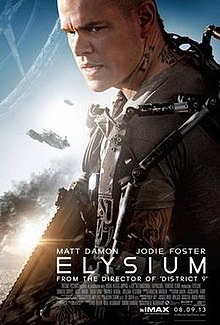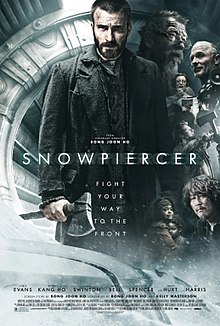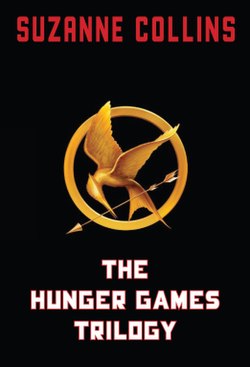Final Exam
I.
Multiple Choice: 2% x 10 = 20%
◎D. H. Lawrence’s “The Rocking-Horse Winner”
1. How many children does the mother have? (A) four (B) one (C) two (D)
three.
2. What does the house whisper? (A) "There must be more money!"
(B) "We are breathing!" (C) "She is such a good mother."
(D) "I know!"
3. What is the boy's name? (A) Derby (B) Oscar (C) Paul (D) Bassett.
4. Where does the boy want the rocking-horse to take him? (A) unknown (B)
away from his family (C) where there is money (D) where there is luck.
◎Joyce Carol Oates’ “Where are you going, where have
you been?”
5. Oates said that she dedicated the
story to ________
because she had been inspired to write it after listening to his song
"It's All Over Now, Baby Blue." (A) The Beatles (B) Planet Waves (C)
Bob Dylan (D) Before the Flood.
◎Willa Cather’s “Paul’s Case”
6. Willa Cather was an
American author who achieved recognition for her novels of _____ life on the
Great Plains, in works such as O Pioneers!, My
Ántonia, and The Song of the Lark. (A) frontier (B) the Golden Rush
(C) expatriates (D) manifest destiny.
7. “Paul’s Case” is a short story about a suspended high
school student in _____ (the name of the city), is frustrated with his
middle-class life and the people around him not understanding his love of
beautiful things, and he runs away to New York City. The setting here is
crucial: around the turn of the century, the city was a highly industrial, very
grey and drab city. And New York City was an art-centered city that sported
many rich people, many museums, the finest hotels and the some of the best
music performances in the world. The transition from this city to New York City
in the story translates to a change from reality to the ideal. (A) Chicago (B) L.A. (C) Pittsburgh (D) New York City.
◎Ursula K. Le Guin’s "The Ones Who Walk Away from Omelas"
8. Ursula Kroeber Le Guin is an
American author of novels, children's books, and short stories, mainly in the
genres of fantasy and science fiction. The series of Earthsea are ranked as one of the three major fantasy writings,
along with The Lord of the Rings by J. R. R. Tolkien and _____’s The Chronicles of
Narnia. (A) J. M Barrie (B) L. Frank Baum (C) C. S. Lewis (D)
Charles Dickens.
◎William Golding’s Lord of the
Flies
9. Lord of the Flies is a 1954 _____
novel by Nobel Prize-winning English author William Golding about a group of
British boys stuck on an uninhabited island who try to govern themselves with
disastrous results. Its stances on the already controversial subjects of human
nature and individual welfare versus the common good earned it position 68 on
the American Library Association’s list of the 100 most frequently challenged
books of 1990–1999. (A) utopian (B) republic (C) brave new (D) dystopian.
10. Sir William Gerald Golding was an
English novelist, playwright, and poet who won a Nobel Prize in Literature, and
is best known for his novel Lord of the Flies. It
takes place in the midst of an unspecified _____. Some of the marooned
characters are ordinary students, while others arrive as a musical choir under
an established leader. Most (with the exception of the choirboys) appear never
to have encountered one another before. The book portrays their descent into
savagery; left to themselves in a paradisiacal country, far from modern
civilization, the well-educated children regress to a primitive state. (A)
nuclear war (B) tsunami (C) tornado (D) drought.
II. Identification: 2% x 15 = 30%
1.
There was a woman who was beautiful, who started with all the advantages, yet
she had no luck. She married for love, and the love turned to dust. She had
bonny children, yet she felt they had been thrust upon her, and she could not
love them. They looked at her coldly, as if they were finding fault with her.
And hurriedly she felt she must cover up some fault in herself. Yet what it was
that she must cover up she never knew. Nevertheless, when her children were
present, she always felt the centre of her heart go hard. This troubled her,
and in her manner she was all the more gentle and anxious for her children, as
if she loved them very much. Only she herself knew that at the centre of her
heart was a hard little place that could not feel love, no, not for anybody.
Everybody else said of her: "She is such a good mother. She adores her children."
Only she herself, and her children themselves, knew it was not so. They read it
in each other's eyes.
Identify
the name of the woman. Hester
2. "I thought when Uncle
Oscar said filthy lucker, it meant money."
"Filthy lucre does mean money," said the mother. "But it's
lucre, not luck."
"Oh!" said the boy. "Then what is luck, mother?"
"It's what causes you to have money. If you're lucky you have money.
That's why it's better to be born lucky than rich. If you're rich, you may lose
your money. But if you're lucky, you will always get more money."
"Oh! Will you? And is father not lucky?"
"Very unlucky, I should say," she said bitterly.
The boy watched her with unsure eyes.
"Why?" he asked.
"I don't know. Nobody ever knows why one person is lucky and another
unlucky."
"Don't they? Nobody at all? Does nobody know?"
"Perhaps God. But He
never tells."
The boy
has the extended conversation with his mother about luck. What kind of effect
did this on the boy and why?
Paul becomes determined to allay his mother's discontent by betting on horses to earn money.
Because Paul wants to earn his mother's love.
3. "I never told you,
mother, that if I can ride my horse, and get there, then I'm absolutely sure -
oh, absolutely! Mother, did I ever tell you? I am lucky!"
"No, you never did," said his mother.
But the boy died in the
night.
In your opinion, what or who
is responsible for the boy’s death?
In my view, the boy's death is result from her mother's ignorance, greedy, and death.
4.
Softly, in the dusk, a woman is singing to me;
Taking
me back down the vista of years, till I see
A child
sitting under the piano, in the boom of the tingling strings
And
pressing the small, poised feet of a mother who smiles as she sings.
In
spite of myself, the insidious mastery of song
Betrays
me back, till the heart of me weeps to belong
To the
old Sunday evenings at home, with winter outside
And
hymns in the cozy parlor, the tinkling piano our guide.
So now
it is vain for the singer to burst into clamor
With
the great black piano appassionato. The glamour
Of
childish days is upon me, my manhood is cast
Down in
the flood of remembrance, I weep like a child for the past.
“Piano” (the title) is a
poem about the power of memory and about the often disillusioning disjunction
between the remembered experience of childhood and the realities of adult life.
The poem is nostalgic without being sentimental; that is, it captures the power
of one’s experiences as a child without ignoring the facts that one’s adult
memories are selective and one’s perceptions and perspective as a child are
severely limited by lack of experience, ignorance, and innocence. The theme in
of the poem is a common one in much of Lawrence’s writing, from short stories
such as “The Rocking-Horse Winner” to novels such as Sons and Lovers.
5.
Everything about her had two sides to it, one for home and one for anywhere
that was not home: her walk, which could be childlike and bobbing, or languid
enough to make anyone think she was hearing music in her head; her mouth, which
was pale and smirking most of the time, but bright and pink on these evenings
out; her laugh, which was cynical and drawling at home . . . but high-pitched
and nervous anywhere else . . .
This
quotation appears near the beginning of the story and explains the
two-sidedness of Connie (the heroine’s name). At home, she appears childish, but
away from home, she strives to appear sexy, mature, and seductive. For the most
part, her two sides seem to exist in harmony. She argues with her mother and
sister at home, but otherwise her transition from child to woman and back again
seems to happen effortlessly. However, the fact that she has two sides rather
than one stable, fully developed personality highlights the awkward, fearful
stage she is in as an adolescent.
6. She
cried out, she cried for her mother, she felt her breath start jerking back and
forth in her lungs as if it were something Arnold Friend was stabbing her with
again and again with no tenderness.
Joyce Carol Oates does not state
explicitly that Arnold has raped the female protagonist. A few lines later, it
seems that Arnold is at the door again, once more trying to get her to come
outside. In these lines, a literal reading reveals that it is her breath that
is stabbing her lungs. Nothing in “Where Are You Going . . .” is black or
white—is Arnold a dream, a demon, or a psychopath?
In my opinion, Arnold is a nightmare to Connie. Because he makes Connie face the danger, which makes her life irrevocably changed.
7. She
and that girl and occasionally another girl went out several times a week, and
the rest of the time Connie spent around the house—it was summer
vacation—getting in her mother s way and thinking, dreaming about the boys she
met. But all the boys fell back and dissolved into a single face that was not
even a face but an idea, a feeling, mixed up with the urgent insistent pounding
of the music and the humid night air of
July. Connie's mother kept dragging her back to the daylight by finding
things for her to do or saying suddenly, 'What's this about the Pettinger
girl?"
The
month stands for the significance of the beginning of the long, boring, and
loose summer vacation for a school girl. What is it?
8. "Stop gawking at yourself. Who
are you? You think you're so pretty?" she would say…"Why don't you
keep your room clean like your sister? How've you got your hair fixed—what the
hell stinks? Hair spray? You don't see your sister using that junk."
Identify
the speaker of the above passage? Connie's mother
9. The carnations in his coat were
drooping with the cold, he noticed, their red glory all over. It occurred to
him that all the flowers he had seen in the glass cases that first night must
have gone the same way, long before this. It was only one splendid breath they
had, in spite of their brave mockery at the winter outside the glass; and it
was a losing game in the end, it seemed, this revolt against the homilies by
which the world is run. Paul took one of the blossoms carefully from his coat
and scooped a little hole in the snow, where he covered it up. Then he dozed
awhile, from his weak condition, seemingly insensible to the cold.
The carnation tells us that he fancies himself an aesthete.
10. The
sound of an approaching train awoke him, and he
started to his feet, remembering only his resolution, and afraid lest he should
be too late. He stood watching the approaching locomotive, his teeth
chattering, his lips drawn away from them in a frightened smile;
once or
twice he glanced nervously sidewise, as though he were being watched. When the
right moment came, he jumped. As he fell, the folly of his haste occurred to
him with merciless clearness, the vastness of what he had left undone. There
flashed through his brain, clearer than ever before, the blue of Adriatic
water, the yellow of Algerian sands.
It is the symbol of mobility that Paul lacks.
11. As
for Paul, he ran down the hill whistling the "Soldiers' Chorus" from Faust,
looking wildly behind him now and then to see whether some of his teachers were
not there to writhe under his lightheartedness. As it was now late in the
afternoon and Paul was on duty that evening as usher at _____ (A) Madison
Square Garden (B) Carnegie Hall (C) Chinese Theatre (D) Detroit Rock City, he
decided that he would not go home to supper.
This place seems to be a
source of pleasure for Paul. In "Paul's Case," art and music are just
as likely to lead you down the wrong path as any other teenage rebellion.
12. With a clamor of bells that set the swallows soaring, the
Festival of Summer came to the city Omelas, bright-towered by the sea. The
rigging of the boats in harbor sparkled with flags. In the streets between
houses with red roofs and painted walls, between old moss-grown gardens and
under avenues of trees, past great parks and public buildings, processions
moved. Some were decorous: old people in long stiff robes of mauve and grey,
grave master workmen, quiet, merry women carrying their babies and chatting as
they walked. In other streets the music beat faster, a shimmering of gong and
tambourine, and the people went dancing, the procession was a dance.
What festival are they celebrating?
13. Night falls; the traveler must pass down village streets, between
the houses with yellow-lit windows, and on out into the darkness of the fields.
Each alone, they go west or north, towards the mountains. They go on. They
leave Omelas, they walk ahead into the darkness, and they do not come back. The
place they go towards is a place even less imaginable to most of us than the
city of happiness. I cannot describe it at all. It is possible that it does not
exist. But they seem to know where they are going, the ones who walk away from
Omelas.
This is the ending scene of the story. In your opinion, why do
they leave and where are they heading for?
They walk away from Omelas because they don't want to be a party to the crime of scapegoating the one wretched child./ Their destinations are unknown.
14. His mind was crowded with memories; memories of the
knowledge that had come to them when they closed in on the struggling pig,
knowledge that they had outwitted a living thing, imposed their will upon it,
taken away its life like a long satisfying drink.
This
quotation, also from Chapter 4 of Lord of the Flies,
explores Jack’s (name of the antagonist) mental state in the aftermath of
killing his first pig, another milestone in the boys’ decline into savage
behavior. He exults in the kill and is unable to think about anything else
because his mind is “crowded with memories” of the hunt. His obsession with hunting
is due to the satisfaction it provides his primal instincts and has nothing to
do with contributing to the common good.
15.
Ralph wept for the end of innocence, the darkness of man’s heart, and the fall
through the air of a true, wise friend called Piggy.
Choose TWO of the following questions, and organize your thoughts in 5 simple steps: an introduction paragraph that begins with a hypothesis invites three supporting paragraphs starting with individual topic sentences and ends up with a short conclusion that briefly re-emphasizes the previous discussion without additional information. Narrow your focus. Build out your thesis and paragraphs. Vanquish the dreaded blank sheet of paper. Find the perfect quote and thought-starters that help you develop your own point of view to float your boat.
city of happiness and delight, whose inhabitants are smart and cultured. Everything about Omelas is pleasing, except for the city's one atrocity: the good fortune of Omelas requires that a single unfortunate child be kept in perpetual filth, darkness and misery, and that all her citizens should be told of this upon coming of age. After being exposed to the truth, most of the people of Omelas are initially shocked and disgusted, but are ultimately able to come to terms with the fact and resolve to live their lives in such a manner as to make the suffering of the unfortunate child worth it. Why do so many people let the child suffer? Discuss this issue with the ideas of the free will.
Answer:
In “The Ones Who Walk Away from Omelas”, Omelas seemed to be a good place. People live happily in the city, and stay in peaceful. But the good fortune of Omelas requires that a single unfortunate child be kept in perpetual filth, darkness and misery, and that all her citizens should be told of this upon coming of age. How can those people be happy and some of the people were kicking the child in the dark room? Why do so many people let the child suffer?
The first answer to the question is the unknown. They don't know what will happen if they insist their value of what is right by making some changes to the current situation. They also not understand whether leaving a group or this city will be good or bad. What they can do is to stay in a ''happy'' life rather than not accepting the fact and leave.
The second point is their conscience. Do they feel guilty living in such a good life in sacrifice to a child's life? In my view, the answer to the former question is definitely yes, because everyone has the conscience and all human have the nature to think about other's filthy condition. In this point, people get accustomed to their current life. They can't imagine if they abandon the happiness and peace in order to change a child's suffering.
The last point is the thing you pursue. In the book of Wen-Yong, Hou, he mentions that there are two kinds of person. The first kind of person is outside the ward, they pursuing money, reputation, and power, which they do whatever it takes to fulfill, even the time of staying with their parents, their family, and their friends. The second kind of person is inside the ward of a hospital, they don't have any minds on gold, fame, or status. Instead, they wish they could see their family, doing something that isn't done before being sent into the hospital. The people outside the ward of the hospital is like the people in the Omelas, living in a seemly true happiness. The people inside the ward is as helpless as the child in the filthy closet. In my opinion, we should consider about our mind at every moment. What I am pursing? Are those things you are pursuing can be brought away when you died? In my opinion, the child suffers as a consequence of all people pursuing their own benefit and even ignore other's pains.
In conclusion, there are three reasons that all people make the child suffer, including the unknown, ignorance of their conscience, and all people pursuing their own needs.
Discuss the themes of Lord of the Flies at an allegorical level.
What does it mean to say that Lord of the Flies is an allegorical novel? What are its important symbols?
Lord of the Flies is an allegorical novel in that it contains characters and objects that directly represent the novel’s themes and ideas. Golding’s central point in the novel is that a conflict between the impulse toward civilization and the impulse toward savagery rages within each human individual. Each of the main characters in the novel represents a certain idea or aspect of this spectrum between civilization and savagery. Ralph, for instance, embodies the civilizing impulse, as he strives from the start to create order among the boys and to build a stable society on the island. Piggy, meanwhile, represents the scientific and intellectual aspects of civilization. At the other end of the spectrum, Jack embodies the impulse toward savagery and the unchecked desire for power and domination. Even more extreme is Roger, who represents the drive for violence and bloodlust in its purest form. Furthermore, just as various characters embody thematic concepts in the novel, a number of objects do as well. The conch shell, which is used to summon the boys to gatherings and as a emblem of the right to speak at those gatherings, represents order, civilization, and political legitimacy. Piggy’s glasses, which are used to make fire, represent the power of science and intellectual endeavor. The sow’s head in the jungle, meanwhile, embodies the human impulse toward savagery, violence, and barbarism that exists within each person. Throughout Lord of the Flies, Golding uses these characters and objects to represent and emphasize elements of the themes and ideas he explores in the novel.
From Sparknotes









_printed_1838.jpg)




